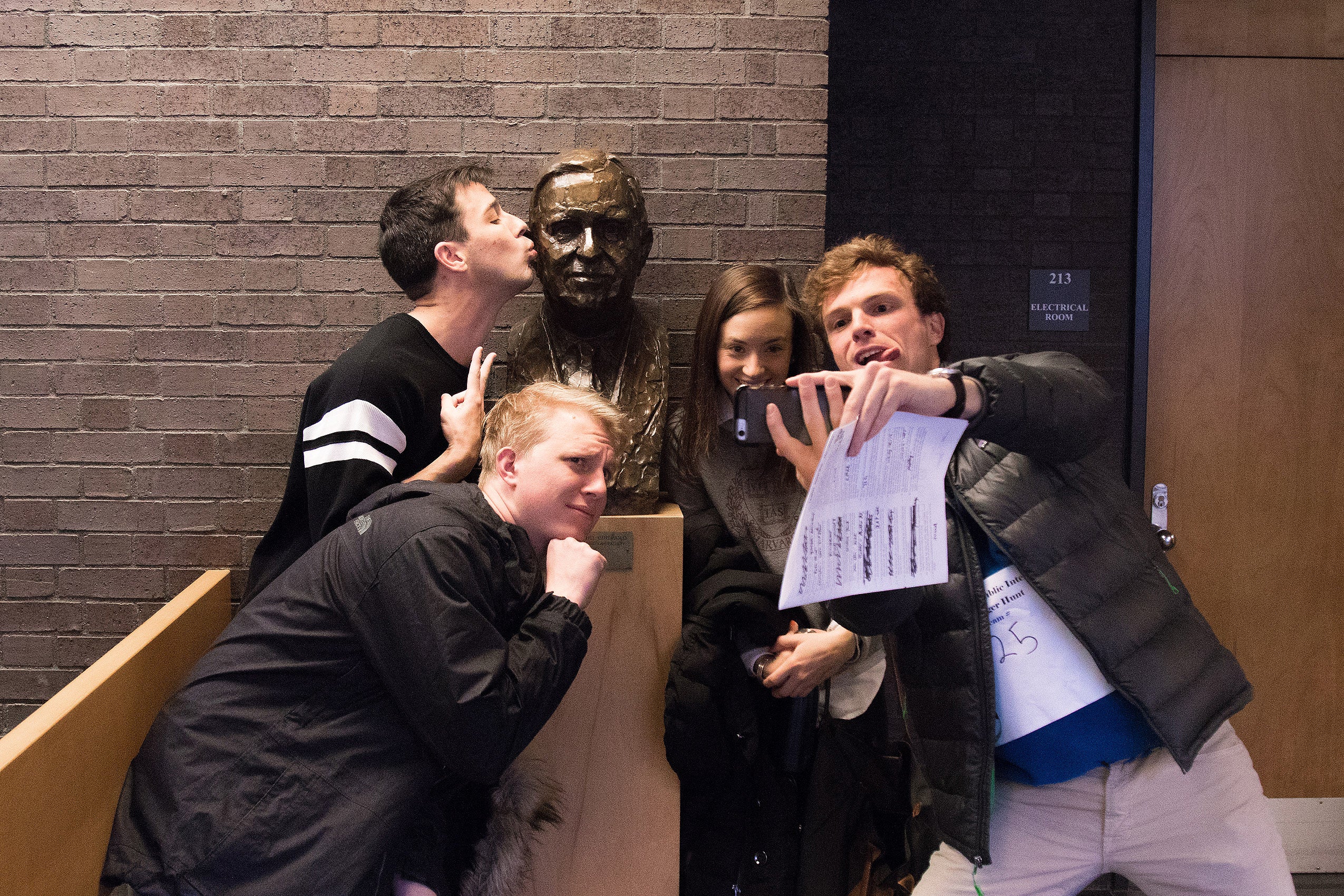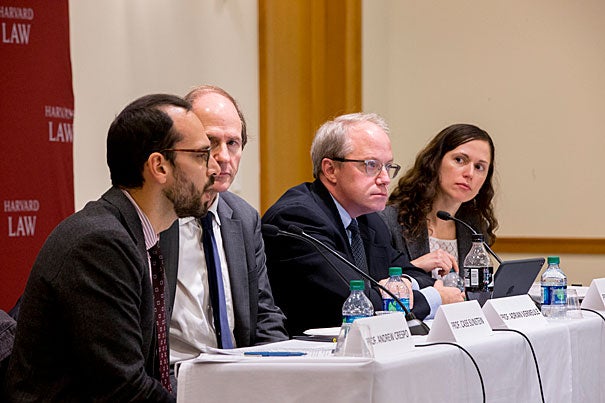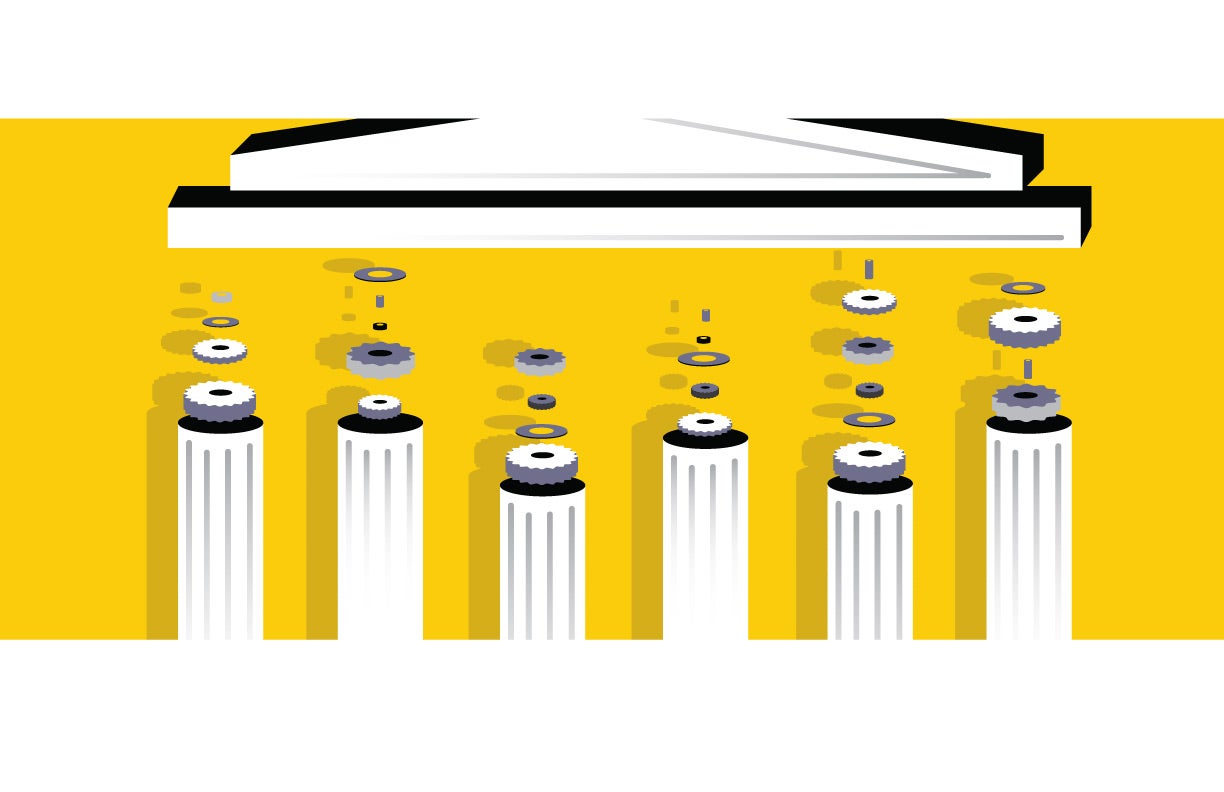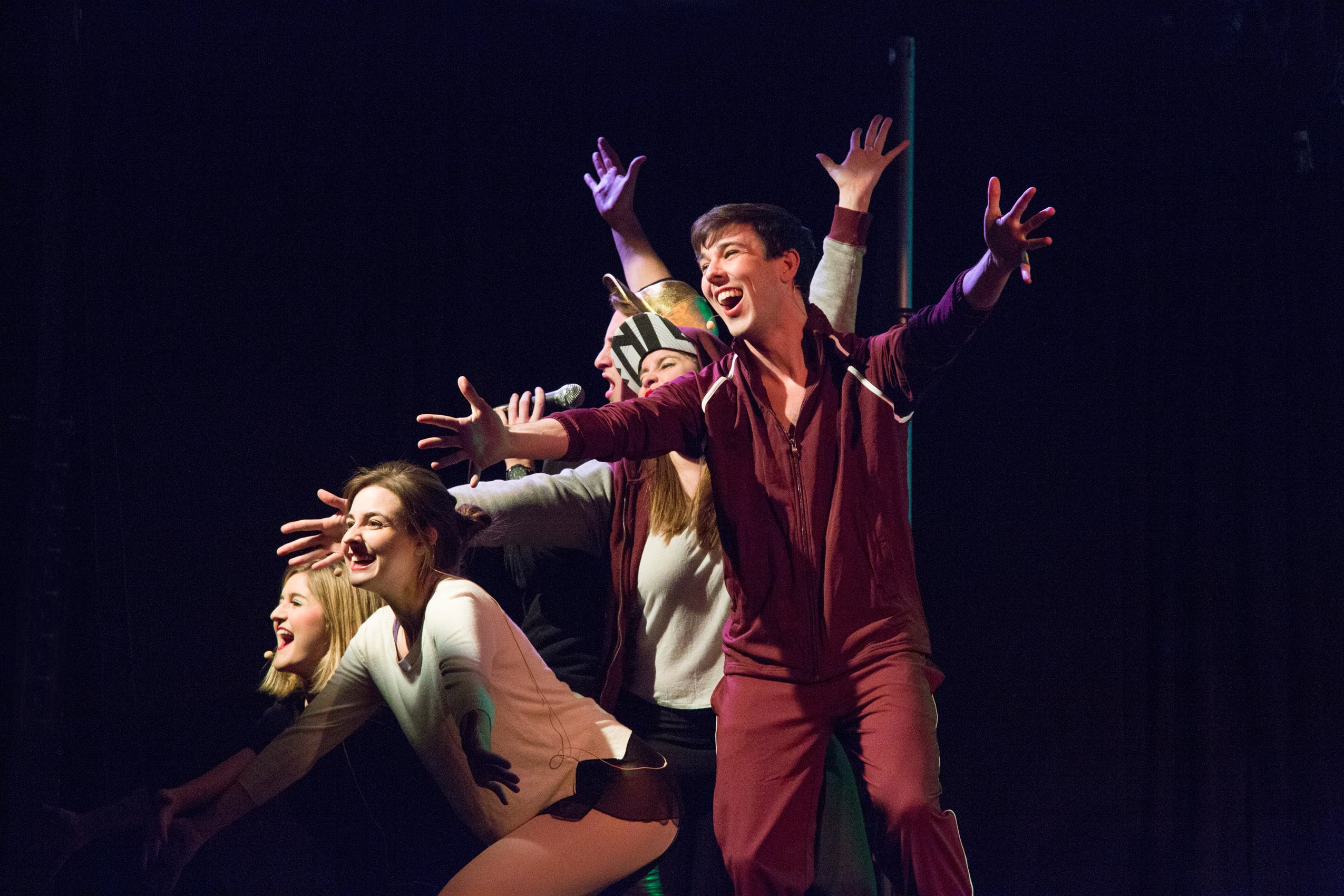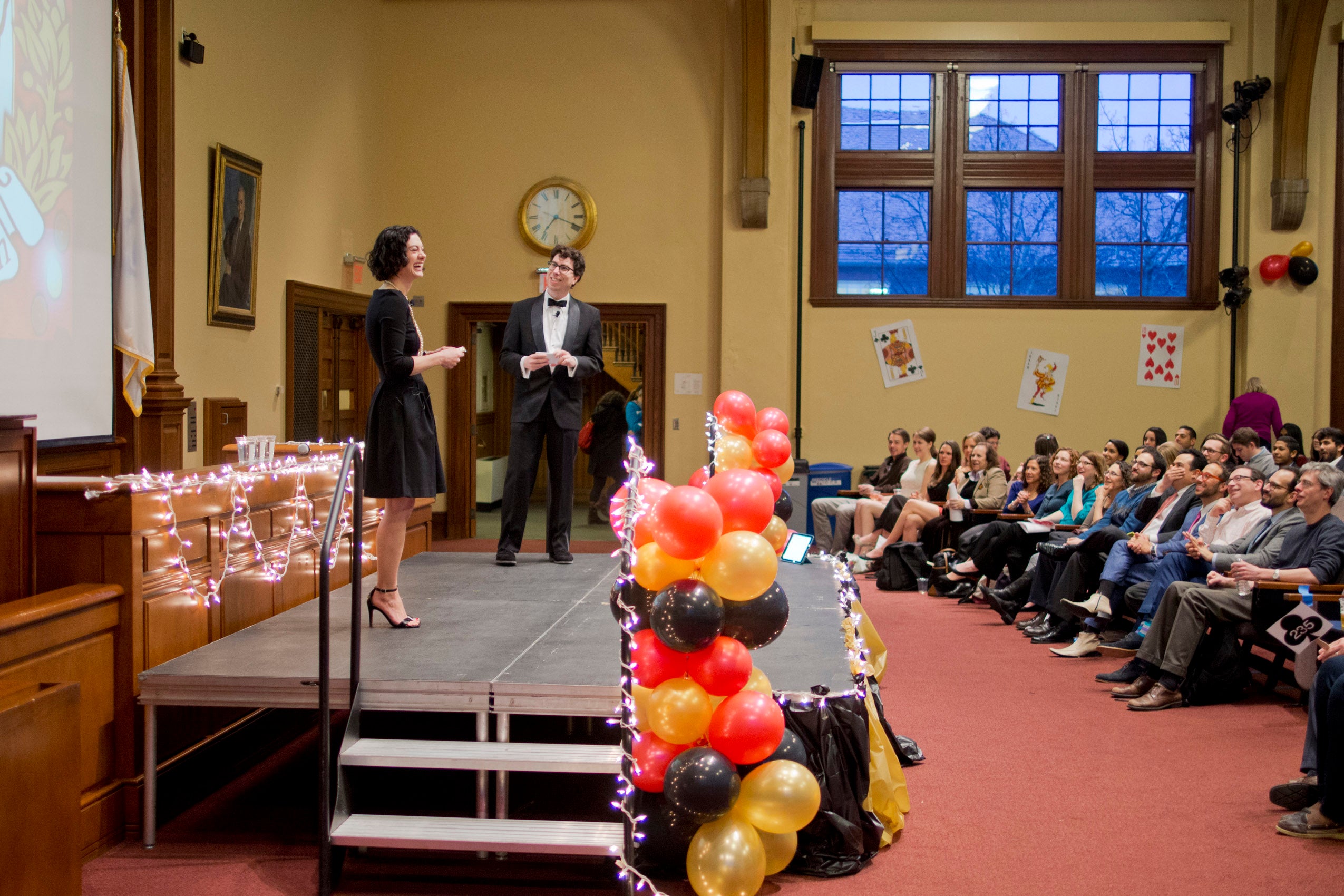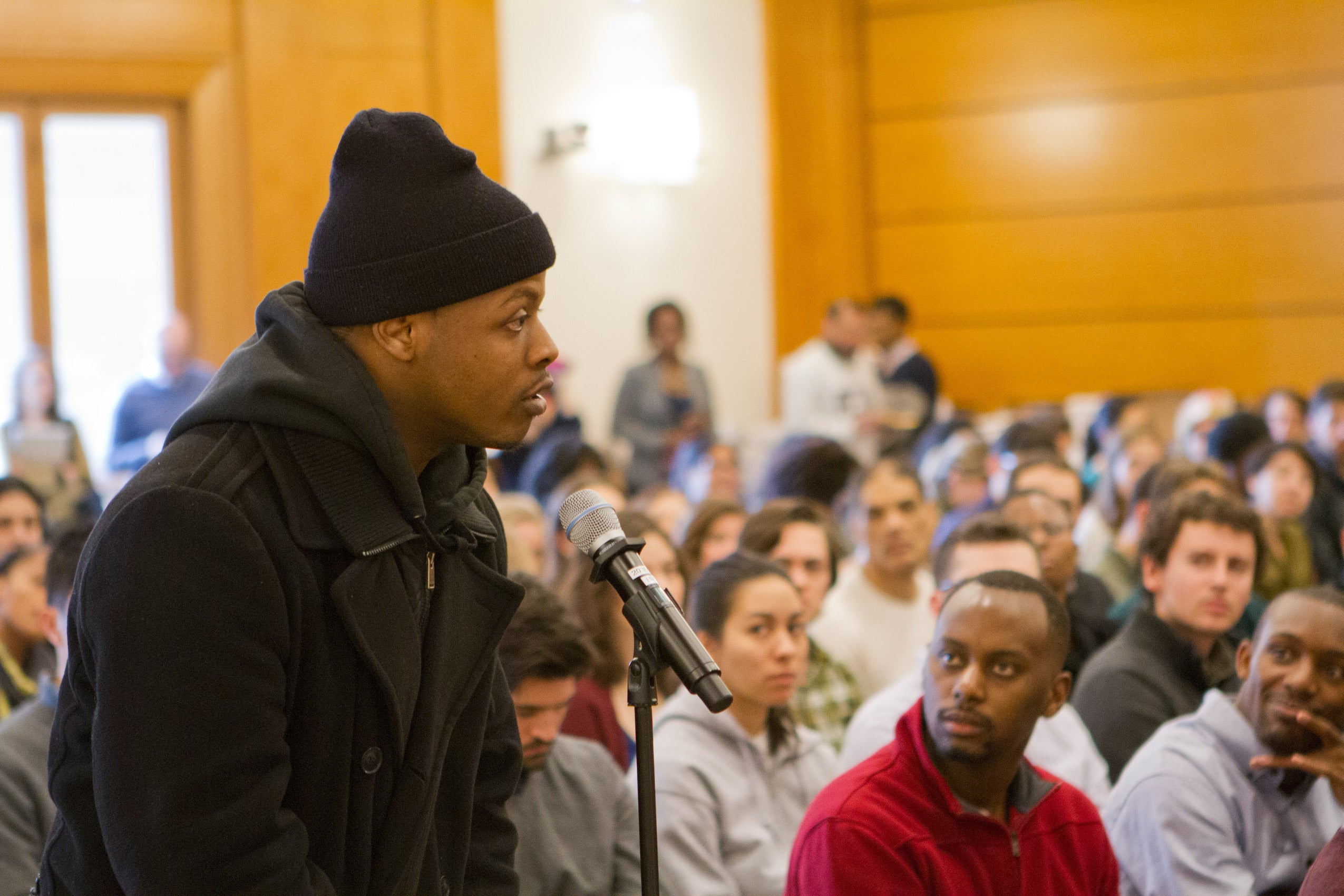People
Andrew Manuel Crespo
-
Harvard Law School scavenger hunt for public interest
April 12, 2017
More than 350 students raced through the halls of Harvard Law School solving clues, answering trivia questions, and taking selfies with professors as part of the school's first ever Public Interest Scavenger Hunt, which had students competing for prizes as the community came together to show support for students working in public interest law.
-
Trump and the law
November 28, 2016
At a recent event, several HLS professors discussed the scope and limits of a president’s executive and judicial powers, the role the courts may play, and the ways in which Trump could reshape the authority and operation of an array of government agencies.
-
Trump and the law
November 27, 2016
As President-elect Donald Trump prepares to take office in January, the legal community has begun to ponder and prepare for the changes the incoming administration may make...Adrian Vermeule ’90, J.D. ’93, the Ralph S. Tyler Jr. Professor of Constitutional Law at HLS, sees two possible prospects for administrative law under Trump. One involves what he called “bipartisan retrenchment.”...Four major signposts during the first 100 days will show whether the Trump administration will transform executive authority or not, said Cass Sunstein, the Robert Walmsley University Professor at Harvard. First, how does the Trump administration handle ostensibly independent regulatory commissions such as the Security and Exchange Commission or the Federal Reserve?...With the executive branch’s role leading the trends in America’s criminal justice system and criminal justice reform, the effect that Trump’s presidency will have in this realm, given that his positions on a number of issues are either unformed or shifting, is still unknown, said criminal law professor Andrew Crespo.
-
Holding a defendant in jail simply because they can’t afford a fixed bail amount is unconstitutional, the Justice Department said in a brief it filed Thursday in a Georgia lawsuit. "Bail practices that incarcerate indigent individuals before trial solely because of their inability to pay for their release violate the Fourteenth Amendment," the department said in an amicus brief, referring to the Equal Protection Clause of the Constitution. ... Questions about the fairness of the criminal justice system even extend to the Supreme Court. A recent study published by Harvard Law Prof. Andrew Manuel Crespo found that in two-thirds of Supreme Court cases, criminal defense lawyers had argued fewer than two cases before the Court.
-
It’s no secret that there’s a crisis in the lower rungs of America’s criminal defense system. Public defenders, overloaded with cases, struggle to offer even bare-bones defense for defendants who can’t afford their own lawyers. But for the first time, research now shows that the scales of justice are tilted against poor defendants all the way to the Supreme Court, with as many as two-thirds of them represented by lawyers relatively inexperienced in the ways of the nation’s highest court...A recent study was able to quantify the advocacy gap between criminal defense lawyers and the rest of the Supreme Court bar, which many regular court watchers have long suspected. The study – published by Harvard Law Prof. Andrew Manuel Crespo – examined 10 years of Supreme Court arguments ending in June 2015. In two-thirds of the cases, they had argued fewer than two cases before the high court.
-
The quality of advocacy at the Supreme Court these days is quite high. “We have an extraordinary group of lawyers who appear very regularly before us,” Justice Elena Kagan said in 2014 at a Justice Department event. But there was, she said, one exception. “Case in and case out,” she said, “the category of litigant who is not getting great representation at the Supreme Court are criminal defendants.” That impression, widely shared by people who frequently attend Supreme Court arguments, has now been confirmed by a comprehensive look at a decade of data. “Criminal defendants are almost never represented by expert counsel in arguments before the Supreme Court,” Andrew Manuel Crespo, a law professor at Harvard, wrote in the new study, which was published in The Minnesota Law Review. In the 10 years ending in June 2015, he found, as many as two-thirds of the arguments on behalf of criminal defendants were presented by lawyers making their first Supreme Court appearances.
-
An op-ed by Andrew Manuel Crespo. First he called Latinos “rapists.” After that, Donald Trump forcibly ejected the country’s leading Latino journalist from a press conference, swiped at Jeb Bush for being married to a Latina, praised supporters who assaulted a Latino man, and sharply criticized the country’s only Latina governor — a fellow Republican. In terms of denigrating Latinos, that’s a hard list to top. But Trump’s most recent attack, this time against federal judge Gonzalo Curiel, is among his very worst. Unanimously confirmed by the Senate, Judge Curiel is presiding over a lawsuit that accuses Trump of swindling students at the unaccredited Trump “University,” which Trump’s own employees have described as a fraud. At a recent rally, Trump said that Judge Curiel should step off the case, and then told the crowd, who had previously chanted “build that wall,” that Judge Curiel, born in Indiana, “happens to be Mexican.” That comment was widely criticized as coded racism. A week later, however, Trump doubled down, telling a reporter that Judge Curiel’s “Mexican heritage” disqualifies him from the case because, in Trump’s words, “I’m building a wall. It’s an inherent conflict of interest.” Being Latino, that is. Only numbness to Trump’s streaming insults could spare this latest slur from becoming a campaign ender.
-
Pulling Back the Curtain
May 4, 2016
It is the rare law review article that directly leads the Supreme Court to change how it does business. But that’s exactly what happened after the Harvard Law Review published an article in 2014 by Richard Lazarus, revealing how Supreme Court opinions get changed after issuance, with little public notice.
-
Harvard Law School: 2015 in review
December 17, 2015
Supreme Court justices, performance art, student protests and a vice president. A look back at 2015, highlights of the people who visited, events that took place and everyday life at Harvard Law School.
-
Harvard Portrait: Andrew Manuel Crespo
June 22, 2015
As a public defender, Andrew Manuel Crespo ’05, J.D. ’08, met his first client on Christmas Eve 2011. Handcuffed and shackled, the client had just celebrated, in juvenile lockup, his eighth birthday. Seated, his feet didn’t touch the floor. “I remember walking in and just being stunned,” recalls the newly appointed assistant law professor. “Like, this is my job now: I represent eight-year-olds who are in handcuffs.” A two-time Supreme Court clerk and the first Latino president of the Harvard Law Review, Crespo aims to interrogate the gap between the criminal-justice system’s ideals and its reality.
-
Karaoke with five HLS professors. A fashion shopping spree with Professor I. Glenn Cohen ’03. A classic movie night with Dean Martha Minow. These were just a few of the unique experiences auctioned off at the 21st annual Public Interest Auction on April 9th.
-
Criminal Justice and Policing after the Events in Ferguson, Staten Island, Cleveland and Elsewhere (video)
February 12, 2015
On Friday, Feb. 6, after several town hall meetings in which Harvard Law students and faculty shared their experiences and observations of discrimination and systemic injustice, as well as hopes for pedagogical and cultural shifts at the law school, the HLS community convened to discuss a somewhat more familiar law school topic: legal and policy reforms.
-
Law Professors Argue for Teaching Rape Law
February 5, 2015
Laws regarding rape should be taught in criminal law classes at Harvard Law School despite its potential to trigger psychological trauma, two Law professors argued at a discussion on the topic Wednesday afternoon. Law professor Jeannie C. Suk, who has taught criminal law and procedure at the Law School, and Andrew M. Crespo ’05, who served as Harvard Law Review’s first Latino president and will teach criminal law for the first time next fall, both stressed the pedagogical value of including rape law in a curriculum. Suk spoke out on the issue when she penned a New Yorker article called “The Trouble with Teaching Rape Law" in December.
-
Meet this year’s new HLS faculty
September 9, 2014
A host of new faculty members arrived at Harvard Law School this academic year, and over the summer, Dean Martha Minow announced two new faculty who will join HLS in 2015.
-
Andrew Crespo ’08 to join Harvard Law School Faculty
August 5, 2014
Andrew Manuel Crespo ’08, an expert in criminal law and criminal justice, will join the faculty of Harvard Law School in 2015 as an Assistant Professor of Law. Crespo is currently a staff attorney in the Trial Division of the Public Defender Service in Washington, D.C., where he represents defendants in jury trials and other proceedings in the criminal process, and also assists in the training of other criminal defense attorneys.
